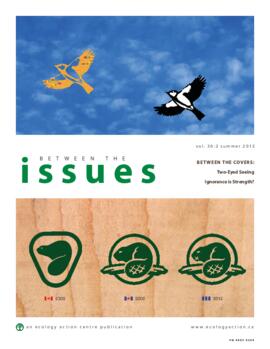Title and statement of responsibility area
Title proper
General material designation
- Graphic material
- Moving images
- Multiple media
- Sound recording
- Textual record
Parallel title
Other title information
Title statements of responsibility
Title notes
Level of description
Repository
Reference code
Edition area
Edition statement
Edition statement of responsibility
Class of material specific details area
Statement of scale (cartographic)
Statement of projection (cartographic)
Statement of coordinates (cartographic)
Statement of scale (architectural)
Issuing jurisdiction and denomination (philatelic)
Dates of creation area
Date(s)
Physical description area
Physical description
115 video cassettes
53 audio cassettes
43 photographs
1 negative
1 slide
1 audio reel
Publisher's series area
Title proper of publisher's series
Parallel titles of publisher's series
Other title information of publisher's series
Statement of responsibility relating to publisher's series
Numbering within publisher's series
Note on publisher's series
Archival description area
Name of creator
Administrative history
The Ecology Action Centre (EAC) is a not-for-profit Halifax-based environmental activist organization founded in 1971. The organization has worked with communities on issues including recycling, transportation, urban development, energy, agriculture, forestry, uranium mining, marine, coastal, and energy issues, the built environment, wilderness, food, and transportation. The EAC works closely with scientific communities and incorporates scientific data into its messages and policy recommendations.
The EAC's operations staff is directed by a board of elected individuals from across the province. The first board had five directors; later there were as many as23. Directors are closely involved in fundraising, participate in setting general policy, and act in advisory capacities. Prominent past members include Halifax-Chebucto NDP MLA Howard Epstein (1991-1994). Committees are an integral part of the EAC's administrative structure; they serve specific areas and act somewhat independently within the organization, holding meetings and organizing public events for educational purposes. The committee structure has evolved over time, with new committees or sub-committees being formed in response to needs.
Custodial history
Scope and content
Notes area
Physical condition
Immediate source of acquisition
Arrangement
Language of material
- English


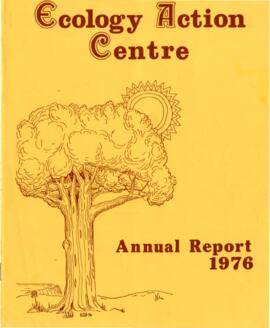
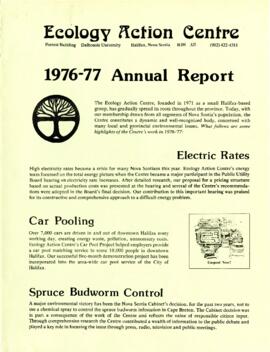
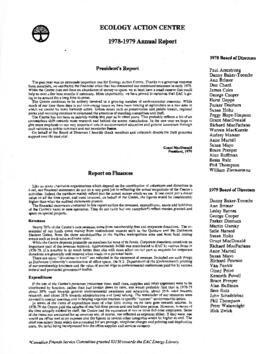
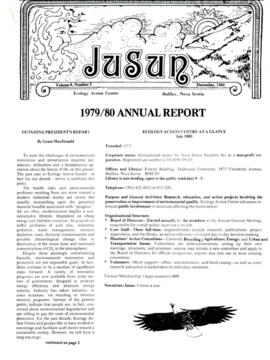
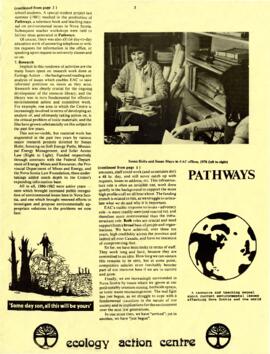
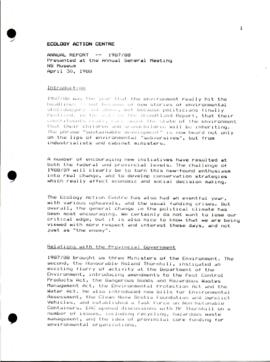
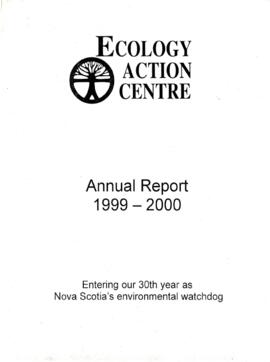
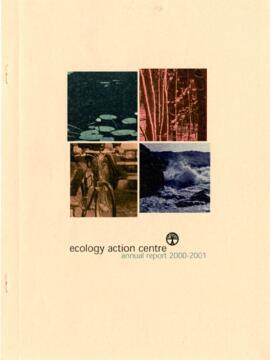
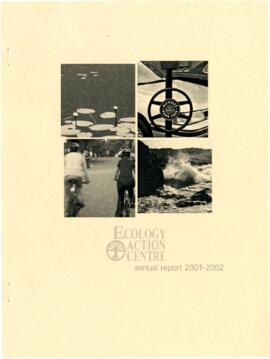
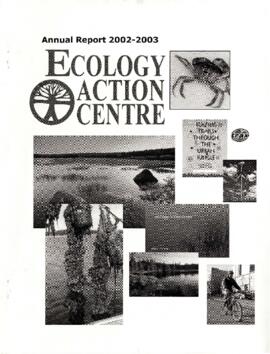
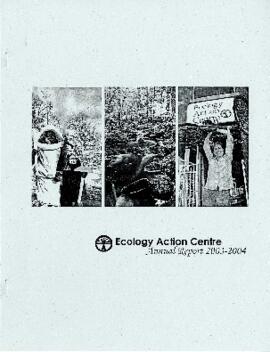
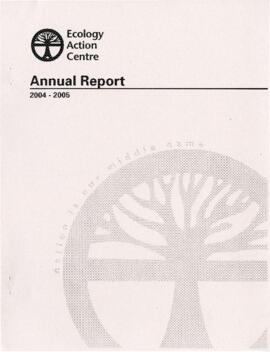
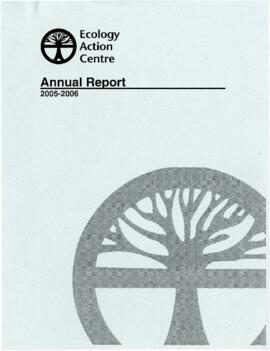
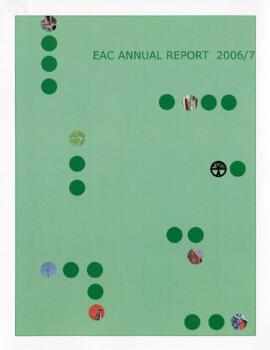
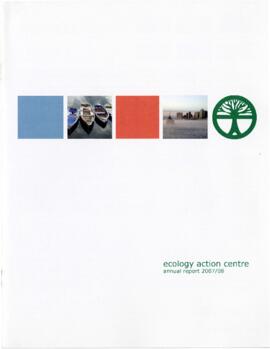
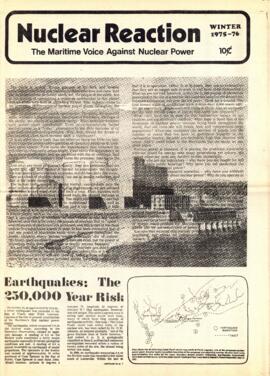
![Welcome to the Ark Project : [manuscript]](/uploads/r/dalhousie-university-archives/b/6/c/b6c2c4f1fc76aa6a73ce762b02c22484c1245d4364955a469d3456d881aeba38/9244152b-de6d-42b5-aad2-b51009621450-MS-11-13_14_10_01_142.jpg)
![Stone Throwing Easing Against Unique Island Ark : [clipping]](/uploads/r/dalhousie-university-archives/b/0/4/b04b6896609e04e61f49ae81ab61bd926dba5c47add9eb4038a92c12df8d82c5/10496ea5-77ba-4783-876d-b9a739fed78f-MS-11-13_14_10_02_142.jpg)
![Space Age Ark, Brand New Home : [clipping]](/uploads/r/dalhousie-university-archives/2/6/4/2643099899d447eea7395daf9ab25ff1453837056d19e6e4d6df82d1f122d1ab/2bc21ac6-b27c-48c8-a6cc-19b190d917c9-MS-11-13_14_10_03_142.jpg)
![Beached! An Ark Hits Sinking Sand : [clipping]](/uploads/r/dalhousie-university-archives/a/e/3/ae347c3d3b68d0d67a1664a439ca779cd42e31f4d0f7d666bc93f121cc3c41c7/53d877bd-1544-4507-aa72-0785be6d11d6-MS-11-13_14_10_04_142.jpg)
![Experimental P.E.I. "Ark" will do it all : [clipping]](/uploads/r/dalhousie-university-archives/7/b/6/7b6aa6ae5beaf3ad9299a9aba2fe4a3d013276154bd1f000516318aed9d9ac67/c140bfe6-3f3b-4224-bc59-d83d2f38292c-MS-11-13_14_10_05_142.jpg)
![Land-locked ark will be scientists' home : [clipping]](/uploads/r/dalhousie-university-archives/0/f/5/0f5c65e6d54e9f4b35084fa542b779e11956b5ba44212a67fef46647e99ec5ec/ed3d0885-9c99-4ed4-a393-12ffd94b9e15-MS-11-13_14_10_06_142.jpg)
![Renewable Energy Technology in P.E.I. : How P. E. I. leads the nation : [clipping]](/uploads/r/dalhousie-university-archives/d/e/0/de066e38fb7edd5f92064e6f0f5a84244e575eb14e653ad44b8755cb68eaf105/8efdc394-a7ce-408e-9ba8-def8fcb30fdb-MS-11-13_14_10_07_142.jpg)
![The Salad Bar : Guavas to garlic in the organic greenhouse : [clipping]](/uploads/r/dalhousie-university-archives/3/a/4/3a464a24b4df7a3e9363240219e352274533f23d8a31de9195f40f6a72186e74/e9101837-eaa6-44a1-b6ba-6d783eb04693-MS-11-13_14_10_08_142.jpg)
![Prince Edward's Ark : Bringing The Homestead Indoors On Prince Edward Island : [clipping]](/uploads/r/dalhousie-university-archives/e/3/2/e3246db67a9929762d5799f341d1729be9527a16088db57c0c6249b8febdbf32/a5cbc0db-61c5-464f-a7ad-d88e18d83d02-MS-11-13_14_10_09_142.jpg)
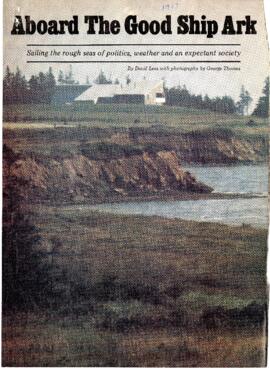
![Sermons, but no solutions at Man and Resources Institute : [clipping]](/uploads/r/dalhousie-university-archives/9/8/4/984324812f4478941eacbc91b4d5e7e7a08c8400abd98714d7a157c3848fa012/5e1a4abf-8b8c-4213-a22d-5c43da1568f0-MS-11-13_14_10_11_142.jpg)
![And as the Ark Sinks Slowly in the East : [clipping]](/uploads/r/dalhousie-university-archives/6/7/c/67c22efa5bc0f0b9c4f59714c1022242293d0c1882590ee43f80e83aab8f1c05/1aef31e7-dfc1-4ac9-9781-5ba0ee86f387-MS-11-13_14_10_12_142.jpg)
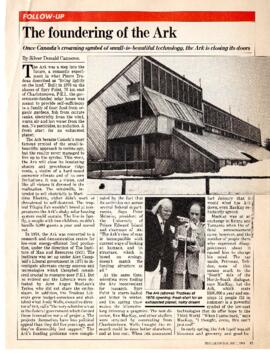
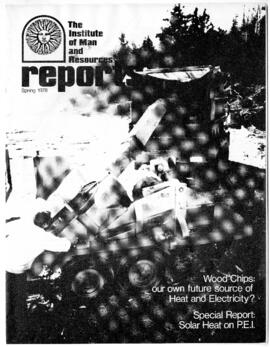
![The Institute of Man and Resources Report, [Fall 1978]](/uploads/r/dalhousie-university-archives/f/7/1/f711593ce5b05aae5cc053b4744a13d132ee8573d91344fc8c9acbd5dfa3f79d/4e5b6bd4-c447-4c66-8770-619204e97c05-MS-11-13_14_10_15_142.jpg)
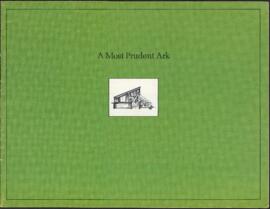
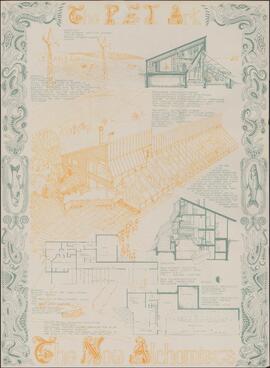
![Exploration of Self-Sufficiency at the P.E.I. Ark : [manuscript]](/uploads/r/dalhousie-university-archives/2/d/1/2d1403d51ffe591110a71ee53ca6125daa5b750cfc6fab7e41ef17597613a1fd/4627e498-496b-4450-b7a8-b225d46b519c-MS-11-13_14_10_18_142.jpg)
![Solar greenhouse aquaculture : [manuscript]](/uploads/r/dalhousie-university-archives/b/b/c/bbcaf25dac3ebacecb12a0932876ec2622038ed448cf82f58bd077ff3e585539/1b90a2de-917c-459b-99c2-3979a14d86da-MS-11-13_14_10_19_142.jpg)
![Solar heating at the P.E.I. Ark : [manuscript]](/uploads/r/dalhousie-university-archives/9/4/6/9469781f1a5969b49d74f364b8f964352da80a9e14e30f74dcbc5b8a9e1bc994/b36b9e45-67a2-4c71-87e2-30bb92cd1fa4-MS-11-13_14_10_20_142.jpg)
![Management of solar greenhouses : [manuscript]](/uploads/r/dalhousie-university-archives/c/0/5/c05354a87d6e64c4d3afad77513933c64cebbfd8409f6b43dfbe86ccc634e838/0bd660a2-5e4d-447c-95d1-aa73db45ac7a-MS-11-13_14_10_21_142.jpg)
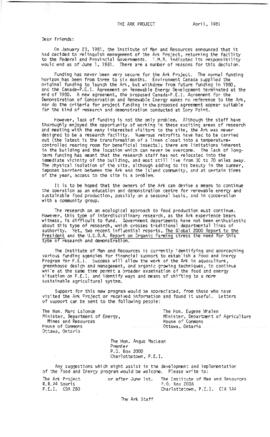
![The Ark Project, Spry Point, P.E.I. : The Year In Review : [periodical]](/uploads/r/dalhousie-university-archives/5/1/b/51b577cdd7e7b9efa3fc30e8ac7e05e5c8b797d6f20de5a5d58fab6bdfe13f81/b69e8989-6903-4566-80f2-3aa297b66139-MS-11-13_14_10_23_142.jpg)
![Spruce budworm population In Nova Scotia, 1985 : [report]](/uploads/r/dalhousie-university-archives/7/9/3/7938658fe26374b89144f8cc83551067be185e4f630032d8989831490c98a98a/23355932-a6fa-487a-a3e5-6b64be504935-MS-11-13_45_26_1_142.jpg)
